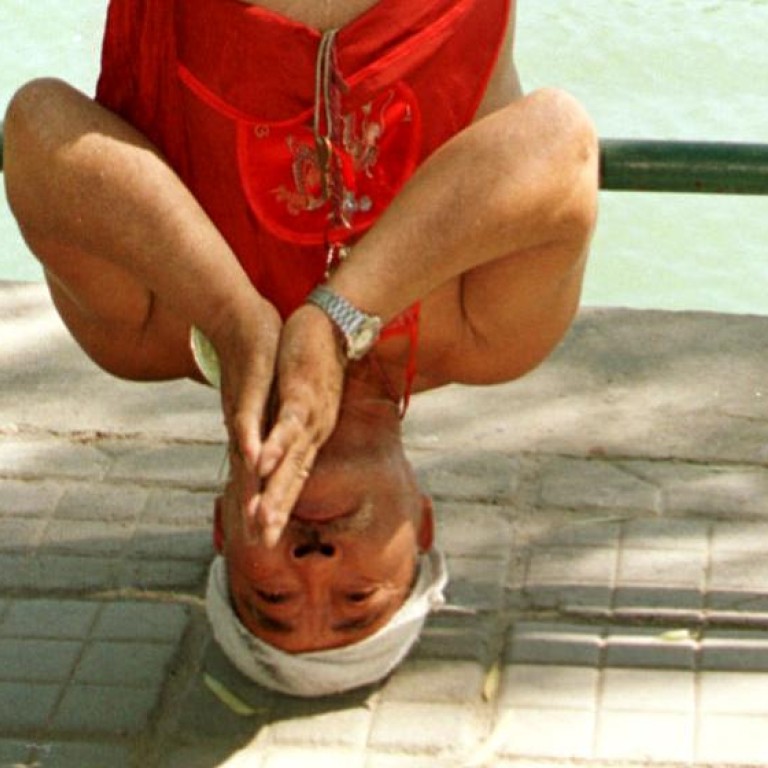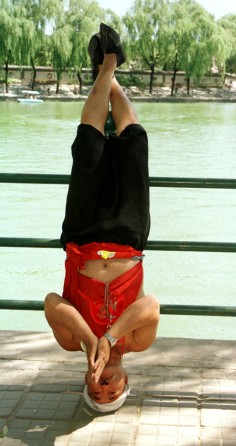
Letters to the Editor, August 26, 2013
The London-based Institute of Economic Affairs found that retirement increased the chances of suffering from depression by 40 per cent, according to a report published on the BBC website earlier this month.
The purpose of this letter is to raise people's awareness about the negative effect on health caused by retirement.
The London-based Institute of Economic Affairs found that retirement increased the chances of suffering from depression by 40 per cent, according to a report published on the BBC website earlier this month.
It also said retirement increased the probability of having at least one diagnosed physical ailment by about 60 per cent.

Other studies show that health problems, both physical - such as hypertension, arthritis, heart disease and stroke - and mental - such as depression - are exacerbated by retirement, whichever age a person retires at.
The reasons why health declines after retirement are largely connected with the lack of mental and social stimulation. When the core social network, which is often offered by work, is removed, health then declines. The retiree can get lonely and research suggests that loneliness leads to mental illness that can lead to physical illness.
In addition, a reduction in income can also affect health.
Apparently, the healthiest retirees still work, volunteer or live an active and social life. That, say researchers, is the key to staying healthy, mentally and physically.
Retirees must fill the social and physical activity gap that the end of work leaves and transition into activities that keep them stimulated.
In my opinion, the most effective way to keep healthy is to keep working and, to this end, the government and companies should introduce and encourage measures that allow people to do so.
As in many advanced countries, there should be no retirement age.
That is not to say that people should work until their dying day. Indeed some people may wish, and have the means to, retire at a much earlier age than the norm.
However, for those who wish to carry on working there should be encouragement to do so.
Cutting down on the number of working hours would be a better alternative than full retirement for many people. Can measures be taken to ensure this?
Though Viv Forbes ("Green energy is the past, not the future", August 22) dislikes the present Australian green energy portfolio, I think Hong Kong is suitable to adopt the failing European green energy models, as Hong Kong has a greater amount of sunshine, even in winter.
But our Environmental Protection Department has never suggested a solar power plan to work with CLP Power and Hongkong Electric in order to supply a cleaner and more sustainable green and carbon-fuel power supply portfolio and help reduce the air contamination conditions in the city.
Solar power can be used for street lamp illumination, in building corridors and for many government non-essential lighting systems.
The carbon fuel system can cut in whenever the solar system is down.
I am sure there are many ready-made examples available in Europe for problem periods, such as contingency plans to cover solar energy supplies on cloudy days, or provide power when there is no wind.
A simple cut-and-paste action by Hong Kong, followed by some technical modifications, can help improve our air quality and bring down our electric bills a lot.
But it seems nobody is interested in doing the job.
There is a no-man's land in the underpass linking Pacific Place and the entrance to Admiralty MTR station (opposite the entry to Admiralty car park), where hawkers are seen selling anything from ladies' handbags to toys and other gadgets, resulting in a serious blockage of the narrow passage.
Inaction and tolerance of hawkers at that location will encourage more of them to come, making the situation worse than it is now.
It is noticed that the hawkers have scouts positioned at both ends of the approach to warn them to fold their stands and disperse when someone in authority is seen.
Probably that is the reason they are never caught.
Could the police in any way arrest these unlicensed hawkers to deter them?
For a start, could either Swire or MTR Corporation advise who is in charge of keeping that key passage clear of hawkers?
National education, Occupy Central and the issue of teacher Alpais Lam Wai-sze have sparked heated debate recently.
More demonstrations are happening in Hong Kong and the younger generation is getting involved.
Is this phenomenon really beneficial to Hong Kong and our younger generation?
We are glad to see more adolescents pay heed to current events and bear the responsibility of a citizen.
We are glad to see adolescents' concern with the needs of different stakeholders in Hong Kong and that they are not apathetic.
We are glad that adolescents can stand up and fight for justice and equality. However, we are not sure whether all of those engaged in demonstrating have done so after careful consideration and with a clear mind.
Some people nowadays go on the streets just because of a resistance to conformity - they just follow what others do, without thinking for themselves, screaming: "I'm fighting for democracy! I'm standing for justice!" How childish are these people?
The future of Hong Kong will turn to chaos in their hands.
Adolescents should first gather information of an issue from both sides and analyse it, following their own thoughts and not just what others think.
A society should and must have different views and voices; we should also respect different parties.
Through peaceful and rational demonstration, we can express our own views.
The most important point is what we do should be consistent with what we think.
We encourage adolescent participation in public issues, but need to ensure it is in an active and effective way.
So, some of our legislators and their families get an all-expenses-paid flight to France to see a new jet ordered by Cathay Pacific ("Democrats apologise for Cathay junket", August 23). Wouldn't it have been cheaper for them to go to Chek Lap Kok after one of their planes arrived there?
Seeing a plane factory "gives them insight" into the industry; does their job require them to have sufficient knowledge to understand why Cathay purchases the planes it does? Are their family members also aviation experts?
Getting an expensive trip free from Cathay around the time it is lobbying the government to stop competition not only "looks like" a conflict of interest - it is. Signing a legally required declaration admitting to participating in the trip does not spare the opprobrium.
Let the name and shame those who subsequently act in the interests of Cathay Pacific, even if they claim that their decision was not influenced by their lavish treatment. Make them repay their European travel costs from their generous salaries - not to Cathay, but to a fund to provide holidays for those in Hong Kong who really need a break.
Of course, the better option would be for none of them to act in the interests of Cathay.
In that way, our local carrier would be doing us all a favour in showing how stalwart (albeit ungrateful) our legislators are.
This custom is a "normal" Cathay activity? We need to know whether any previous government officials have voted in favour of the Cathay Pacific lobby subsequent to such "sweeteners". In fact, any investigation should be broadened; this cannot be solely a Cathay phenomenon.
Trevor G. Cooper, Tuen Mun
The letter ("MTR incident is no excuse for prejudice", August 21) ignores what happens in everyday life.
I concede that the MTR Corporation should improve its public ancillary facilities, such as by installing more washrooms. However, that is still not an excuse for mainland visitors to defecate anywhere they like and then blame public authorities for not providing them with enough facilities. This is not simply about cultural differences. Their behaviour should be classified as barbarian and uncivilised.
Mencius said that "a man must first despise himself, and then others will despise him". The quote provides an answer to why mainland visitors are increasingly becoming unwelcome among local citizens.
The repercussions of the Individual Visit Scheme since its inception in 2003 are gradually being deemed a "poisoned tree".

